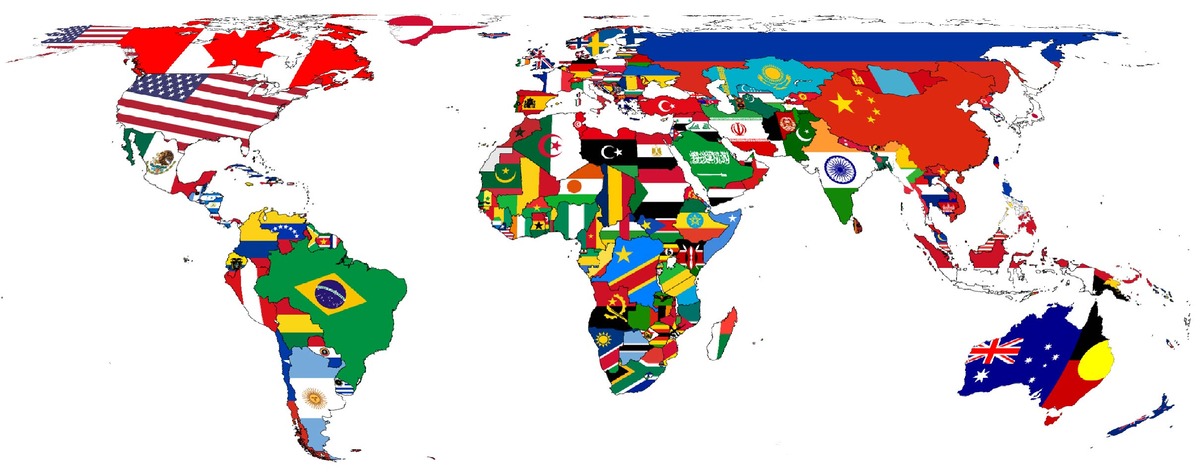After sending global markets into a tailspin with sweeping new tariffs, US President Donald Trump has temporarily paused the hikes for countries that have not retaliated. Tariffs on most nations dropped to 10%, but China saw a dramatic spike to 145%, intensifying global tensions.
“I thought that people were jumping a little bit out of line, they were getting yippy,” Trump told reporters. “Nothing’s over yet.”
Here’s how countries around the world are responding to this unpredictable trade storm:
Nigeria
Nigeria, facing a steep 14% tariff, chose diplomacy over retaliation.
“Nigeria remains actively engaged in consultations with US counterparts and the WTO, approaching evolving trade dynamics with pragmatism and a commitment to mutually beneficial solutions,” Trade Minister Jumoke Oduwole said
She noted that over 90% of Nigeria’s $5–6 billion annual exports to the US are crude petroleum and mineral fuels, with fertilisers, urea, and lead making up about 3–4%, and agricultural products under 2%.
Oduwole acknowledged potential damage to SMEs relying on AGOA, “SMEs building their business models around AGOA exemptions will face the pressures of rising costs and uncertain buyer commitments.”
In response, Nigeria is boosting non-oil exports and leveraging African trade frameworks:
“We are turning global and regional trade policy challenges into opportunities to grow our non-oil export footprint and build a more resilient economy,” she added.
China
China hit back quickly, raising tariffs on US imports to 125% and threatening further measures if provoked.
“At the current rate, there is already no market acceptance for US imports to China,” stated China’s finance ministry, dismissing the escalation as “just a ‘numbers game.’ It would be a joke.”
While reiterating its reluctance to enter a trade war, Beijing was unyielding:
“China does not want a trade war. But the Chinese government will by no means sit by when the legitimate rights and interests of its people are being hurt and deprived,” said a Ministry of Commerce official.
“If the United States is bent on waging a tariff war or trade war, China is ready to fight to the end,” added foreign ministry spokesperson Lin Jian.
“We do not provoke trouble, nor do we fear trouble,” declared commerce spokesperson He Yongqian. “Coercion, threats, and blackmails are the wrong ways to deal with China.”
Côte d’Ivoire (Ivory Coast)
Ivory Coast, the world’s top cocoa producer, warned of price hikes in retaliation:
“When you tax our product that we export to your country, we will increase the price of cocoa and that will have a repercussions on the price to the consumer,” said Agriculture Minister Kobenan Kouassi Adjoumani.
“If our products are not accepted in the United States, the E.U. can recover all of them.”
Brazil
Brazil adopted a cautious diplomatic approach.
“The guidance from the minister and Vice President [Geraldo Alckmin] is to negotiate, negotiate, negotiate,” said Foreign Trade Secretary Tatiana Prazeres.
“We have an open dialogue with US authorities.”
“That’s not the scenario we hope for, because the risks are very significant.”
India
India viewed Trump’s 90-day pause as an opening for a trade agreement.
“India is one of the first nations to start talks over a deal with the United States and to have jointly agreed to a deadline to conclude it,” said an unnamed government official.
Cambodia
Cambodia responded promptly with diplomacy and secured a positive reaction.
“The Royal Government has received a positive response from the United States following our official request for negotiation to achieve a mutual solution,” said the Commerce Ministry.
Minister Delegate Jean-Francois Tain called the pause “good news,” noting on Facebook, “This trade war is a global phenomenon. However, each government thinks of its own country’s interest first.”
ALSO READ VIDEO: At 40, I don’t mind being fifth wife if I have the opportunity — Toke Makinwa
Malaysia & ASEAN
Malaysia expressed cautious relief while emphasizing regional instability.
“Nothing is certain but uncertainty when it comes to Trump tariffs!” wrote Minister Tengku Zafrul Aziz.
He said ASEAN countries would use the pause to seek solutions:
“The 90-day window offers time to find a pragmatic and mutually advantageous solution.”
Bangladesh
Bangladesh welcomed the reprieve, underscoring alignment with US policy.
“We will continue to work with your administration in support of your trade agenda,” said interim leader Muhammad Yunus.
He thanked Trump for “responding positively to our request.”
Lesotho
Lesotho, hit with a 50% tariff, expressed deep concern over the effectiveness of diplomacy.
“I don’t know what is going to happen after 90 days,” said Trade Minister Mokhethi Shelile.
“I don’t have a good experience with trying to get meetings with [the Trump Administration].”
“I hope we will be given an audience,” he added. “I’m not confident.”
Japan
Japan issued a firm but restrained appeal to reconsider the tariffs.
“We continue to express our strong concerns and strongly request that they be reviewed,” said Economic Revitalization Minister Ryosei Akazawa.
Poland
Poland called for calm and resilience in the face of market shocks.
“Let’s make the best of the next 90 days,” posted Prime Minister Donald Tusk on X.
“The Polish stock market also got a ricochet, but political and economic stability are our assets in this difficult time. We will calmly persevere!”
ALSO READ TOP STORIES FROM NIGERIAN TRIBUNE




